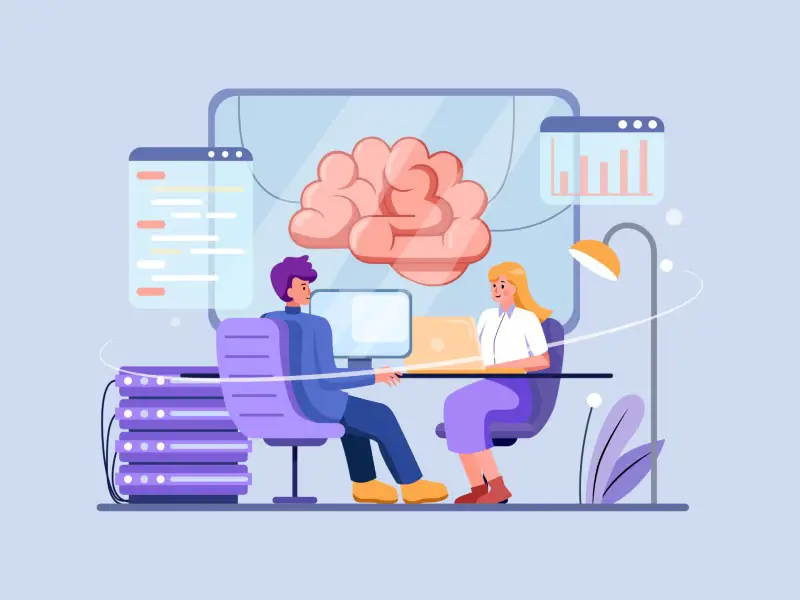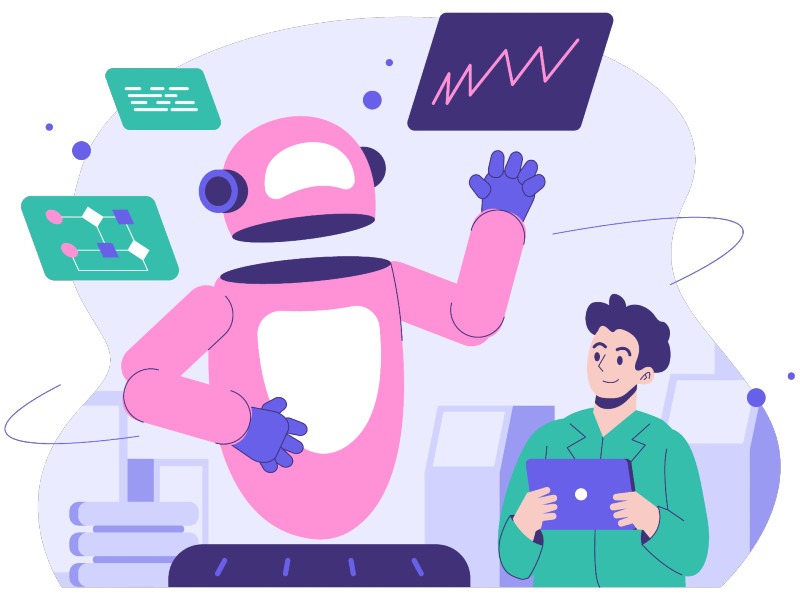Introduction
As we stand on the threshold of an urban revolution, a new player has entered the field to change the game: Artificial Intelligence (AI). Today’s cities are evolving into digitally integrated ecosystems where AI is not just a buzzword, but a critical pillar supporting the edifice of future urban landscapes. This blog post aims to explore the profound ways in which AI is redefining the idea of ‘smart cities’ for tech enthusiasts and curious minds alike.
Smart cities, envisioned as urban areas that leverage digital technology, IoT (Internet of Things), and AI, are rapidly becoming a reality. With intelligent systems to manage utilities, traffic, public safety, and more, these cities are set to revolutionize the urban experience. The integration of AI in particular offers unprecedented opportunities to improve city services, enhance sustainability, and elevate the quality of life for residents.
For all tech enthusiasts out there, this is an exciting time. The fusion of AI and urban life is not just a concept of the future, but a reality that’s unfolding right before our eyes. Let’s dive in and discover the role of AI in shaping our smart cities, how it’s transforming urban landscapes, its impact on urban planning, and its potential to drive sustainable development.
Artificial Intelligence and Smart Cities
Artificial Intelligence in smart cities is not just about embedding technology into urban infrastructure. It’s about harnessing data to make better decisions, predict needs, and solve urban problems. AI uses machine learning and other techniques to analyze this data, helping city managers improve services, anticipate issues, and make informed decisions about urban development.
An example is the city of Barcelona, which leverages AI and IoT to manage its services efficiently. It uses sensors to monitor everything from air quality to waste management, and AI analyzes this data to provide insights for the city managers. Barcelona’s smart city project has resulted in a savings of €75 million annually on water (source).
Which of the following industries commonly requires data entry tasks?
Understanding the Role of AI in Smart Cities
In smart cities, AI acts as the brain that interprets and makes sense of the enormous amount of data collected from various sources. This data can be used to optimize public transportation, manage utilities, improve public safety, and enhance urban living overall.
For instance, in Singapore, AI is being used in the city’s “Virtual Singapore” project – a dynamic 3D model that allows city planners to run virtual experiments to improve city services and infrastructure (source). These initiatives are gradually transforming the urban landscape, paving the way towards a new era of city planning and management.
Artificial Intelligence and Deep Learning with Python
Are you wearied by deep learning resources that don’t clarify every single line of code? “Artificial Intelligence and Deep Learning with Python” revolutionizes the way deep learning, AI, and Python are introduced to beginners. The author draws an insightful analogy, equating a computer language with any other language, asserting that understanding every component of a sentence or a line of code is vital to generate novel ones. Unlike other resources claiming to be for “beginners”, this book stands out by dissecting and explaining every line of code.
There’s nothing more perplexing than encountering an unexplained line of code after an initially well-explained one. This book ensures a seamless learning journey with comprehensive explanations for each line of code in every project discussed, along with detailed insights into deep learning and AI concepts. Whether you’re a Python novice or a seasoned programmer, this book will guide you through the intriguing applications of Python in diverse AI and deep learning projects.
You’ll dive into captivating projects and topics, including:
- Deep learning applications in audio/music and voice recognition
- Neural network implementations with image files
- Creating an algorithm for predicting stock prices
- Applying AI through Thompson sampling
- Using deep learning for crime statistic predictions
- Binary classification with neural networks
- Building a Convolutional Neural Network (CNN) for your image files
- Teaching your computer to “read” and “comprehend” the English language
- SQL integration with neural networks
About the author: Steven D’Ascoli, an adjunct professor at St. John’s University, is renowned for his multi-disciplinary expertise.
How AI is Shaping the Urban Landscape
Artificial Intelligence is not just altering the function of cities; it’s also reshaping their physical form. By influencing urban design and architecture, AI is crafting the look and feel of our future urban landscapes. AI algorithms are now being used to design more efficient buildings and city layouts, improving both aesthetic and function.
A pioneer in this field is Sidewalk Labs, a subsidiary of Alphabet Inc., which is using AI to create more efficient and livable urban spaces. Their project in Toronto, known as Quayside, is a remarkable example of an AI-aided urban landscape (source).
Artificial Intelligence in Urban Planning: A New Vision
The intersection of AI and urban planning heralds a new vision for cities. By analyzing various datasets, AI can help urban planners make better decisions, forecast future trends
, and develop strategies to handle the challenges of urbanization.
Take the example of UrbanFootprint, a California-based company, which is using AI to understand urban issues like housing, transportation, and environmental impact. Their software helps urban planners simulate the impacts of different planning scenarios and make data-driven decisions (source).
AI can also bring about a new level of precision in planning and managing public transport systems. The Swedish city of Gothenburg is using AI to optimize public transport routes, using predictive models that consider factors like weather, special events, and historical data. This AI-driven approach has led to significant improvements in the city’s public transportation efficiency and reliability (source).
Moreover, AI can facilitate smart zoning, which involves leveraging AI-powered analytics to guide land-use decisions. This can help prevent urban sprawl, protect environmentally sensitive areas, and ensure the optimal use of urban land.
Finally, AI can also aid in planning urban utilities and infrastructure. It can predict the demand for electricity, water, and other utilities, allowing for optimal allocation of resources. This can result in significant cost savings and enhance the sustainability of cities.
Embark on a journey to redefine your online business by exploring our e-Commerce wholesale platform, where you’ll find an extensive array of products and suppliers to elevate your retail game. Venture beyond the realms of conventional e-Commerce.
The Role of AI in Sustainable Urban Development
As cities around the world strive to become more sustainable, AI offers a valuable tool to help them achieve this goal. By providing insights from data, AI can support sustainable decision-making in urban development.
A prime example is Google’s Environmental Insights Explorer. This tool uses AI to analyze Google’s extensive data to provide cities with insights on their carbon footprint and potential areas for solar energy deployment (source).
AI can also assist in managing waste more effectively. The city of Seoul in South Korea has implemented an AI-based system to manage waste collection and recycling. This has resulted in more efficient waste management and a significant reduction in the city’s waste footprint (source).
Moreover, AI can play a pivotal role in improving air quality, a critical aspect of urban sustainability. BreezoMeter is an AI-powered service that provides real-time air quality data, helping cities make informed decisions about urban planning and public health measures (source).
Artificial Intelligence and the Future of Smart Cities
As we peer into the future of smart cities, it is clear that AI will continue to play a pivotal role. With advancements in machine learning and data analytics, the potential applications of AI in urban management and planning are virtually limitless.
From streamlining public services to fostering sustainability, AI is poised to revolutionize urban life in unprecedented ways. For tech enthusiasts and urban dwellers alike, this offers an exciting glimpse into a future where our cities are smarter, more efficient, and more livable.
In conclusion, the role of Artificial Intelligence in sculpting smart cities is proving to be transformative. It is not just about embedding technology into our urban fabric; it’s about leveraging data to improve urban life and make cities more sustainable.
The marriage of AI and urban living is not just a concept of the future, but a reality unfolding before our eyes. It offers promising prospects for improved city services, enhanced urban planning, and increased sustainability.
Moreover, as we continue to navigate the rapidly evolving technological landscape, it’s exciting to envision the limitless possibilities that AI presents for smart cities. A transformative journey is on the horizon, and as tech enthusiasts, we are at the forefront of this urban revolution.
The era of AI in urban life is here. And as we move forward, it’s important to
embrace and understand the potential of AI to improve the quality of life in our cities. AI is the key to unlocking a smarter, more efficient, and more sustainable urban future. Whether we’re city dwellers, tech enthusiasts, or both, it’s clear that AI will play an increasingly central role in our urban experiences.
Ultimately, our cities are evolving, and AI is playing a major role in this transformation. From enhancing public services to creating sustainable urban spaces, the AI-empowered city is not just about technology, but about creating environments that are conducive to innovation, creativity, and an improved quality of life.
AI has already begun to demonstrate its vast potential for enhancing urban life. And as we look towards the future, we can only expect this impact to grow. The story of AI and smart cities is still being written, but one thing is clear: it’s a story that will shape the future of urban living in remarkable and exciting ways.

AI: A Green Revolution in the Agricultural Landscape
Artificial Intelligence is fueling a new Green Revolution, transforming agriculture with precision farming, sustainable practices, and smarter pest control. Discover how AI is shaping the future of farming, creating a sustainable, efficient, and productive agricultural landscape



